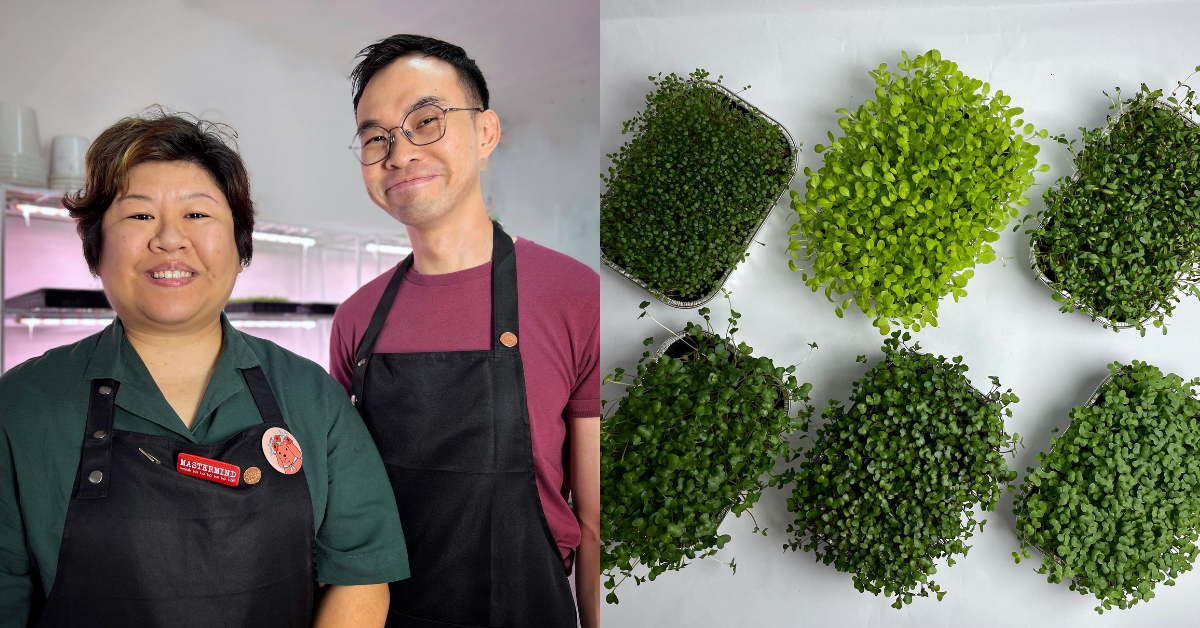He’s an expert in intellectual property. Her background is in construction.
How did these two Malaysians from different fields come together to start an urban farming company together?
Despite their different paths, Qi-Guang and Karen have been friends for years since college, laying the groundwork for their business partnership.
The spark for that partnership came up casually during an afternoon catch up over cakes and tea, of all things.
“We realised that Malaysia had a significant challenge with food security, relying heavily on the Cameron Highlands region for its vegetable supply,” Karen recalled.
This dependency highlighted the need for diversification and local alternatives. That’s when the two decided they could help fill this gap.
Although neither have formal backgrounds in agriculture, their passion and connection for the field run deep.
Qi-Guang has been the driving force behind this endeavor, having grown up in a family dedicated to agricultural research.
Karen shared, “From a young age, Qi-Guang was exposed to various farming techniques like hydroponics, aeroponics, aquaponics, organic farming, composting, bokashi, plantations, and orchards.”
As for Karen herself, she grew up in Sabah with her maternal grandparents who were farmers. There, she saw firsthand the value of hard work and the rewards of farming.
Combining their backgrounds, they founded Tiny Acres in mid-2022, officially kicking off operations in November that year.
Producing beyond produce
Essentially, Tiny Acres is an innovative indoor vertical farm that grows up to 14 varieties of microgreens.
But more than just selling microgreens, Tiny Acres’ goal is to pioneer a comprehensive approach to urban farming.
“Starting with microgreens gives us a foundation of sustainable, high-nutrient produce, but our vision goes much further,” Karen elaborated.
For one, their work doesn’t end at just harvesting greens. Keeping in mind the demographic of people who don’t like eating vegetables, Tiny Acres has created a liquified form of their greens.
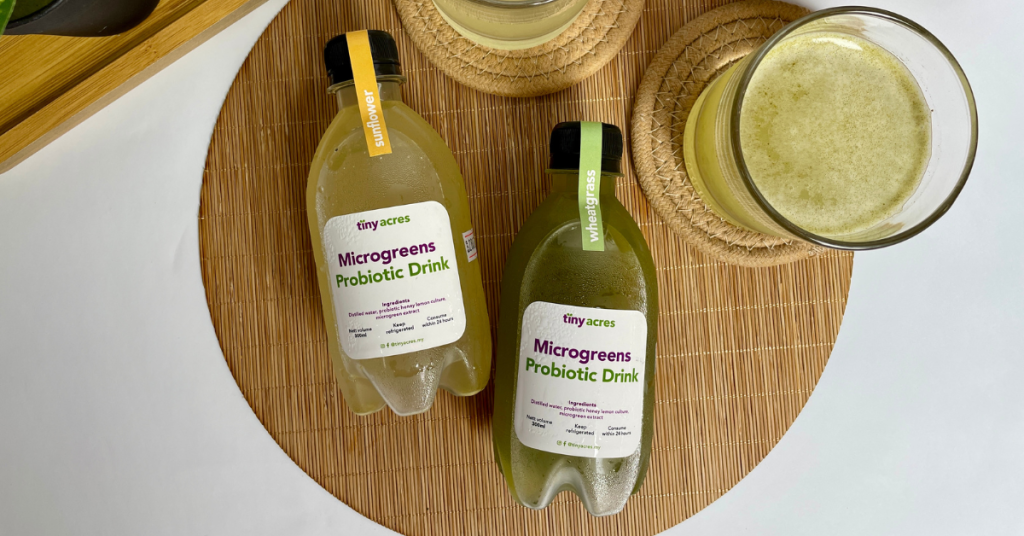
They told Vulcan Post that they’re also developing a honey probiotic drink that includes microgreens, combining the health benefits of probiotics with nutrient-dense microgreens.
With these healthy drinks as well as grow kits, they have been broadening their impact and reach.
These efforts go towards their mission to revolutionise urban farming by bringing the farm directly to the city, significantly reducing the food miles associated with traditional agriculture.
“This not only cuts down the environmental impact of transporting food over long distances but also ensures that our customers get the freshest produce possible,” they added.
“By integrating the farm into the urban landscape, Tiny Acres enhances food security and promotes sustainable living practices among city dwellers.”
Committed to supporting the local economy, the farm also collaborates with local farmers, chefs, and businesses to foster a vibrant community network.
“Through these partnerships, we supply high-quality produce and engage in educational initiatives to share knowledge about sustainable farming practices,” they elaborated.
By promoting education and collaboration, they aim to build a more resilient and self-sufficient local food system.
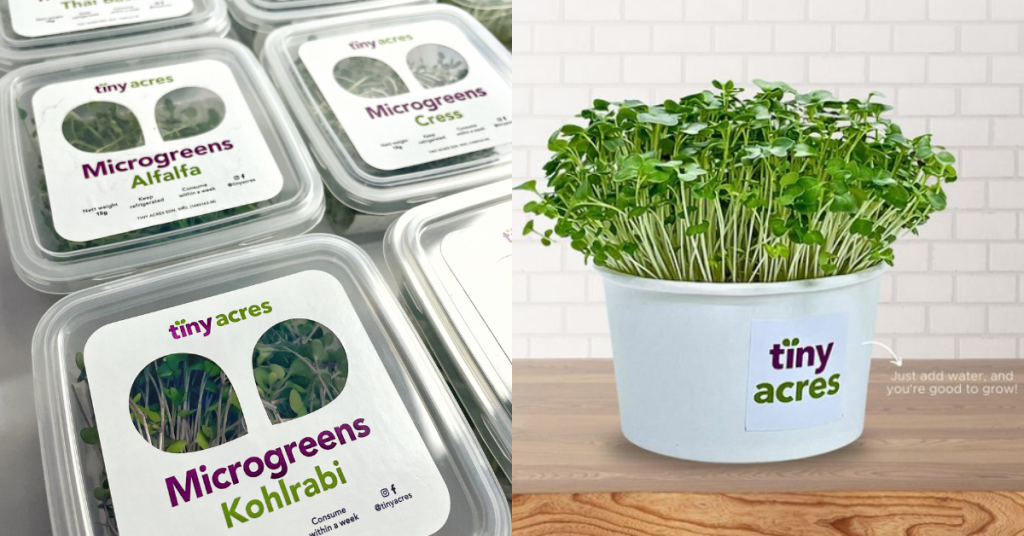
Not the only tiny, green company in town
Something we noticed, though, was that Tiny Acres’ name sounded quite similar to another microgreens brand we featured in the past, Tiny Greens.
When asked about it, the team shared that they are aware of the similar name, but had decided on Tiny Acres because it summed up their ambition to compress the vast expanse of traditional farmland into a more compact, efficient urban footprint.
In any case, Tiny Acres isn’t the only urban farming startup in town, though. There are many other businesses in the scene such as Agroz and BoomGrow.
But rather than focus on competition, they’re honing in on partnerships that contribute towards the larger ecosystem.
For one, they’ve begun partnering with other startups, chefs, distributors, cafes, and various local enterprises to more seamlessly integrate their products into the local food ecosystem.
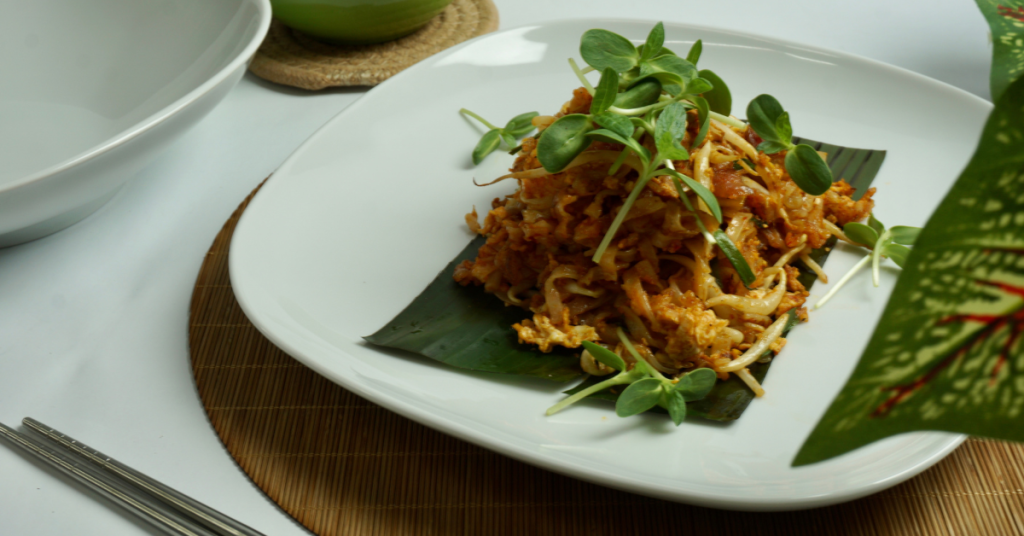
With these partnerships, Tiny Acres’ microgreens can be turned into culinary creations or health-focused products.
Rooting out the growing pains
Farming, even when it is urbanised, isn’t as easy as just planting some seeds and hoping for the best, though.
A major challenge the team has faced involves the R&D process of growing new varieties of microgreens.
The founders explained that microgreens require specific conditions to thrive. Each type of microgreen has its own set of requirements in terms of light, water, and nutrients.
Believing in the end goal, the founders have invested significant time and resources to experimenting with various growing techniques and environments.
“This meticulous approach has allowed us to expand our range of offerings while maintaining the high quality our customers expect,” they said.
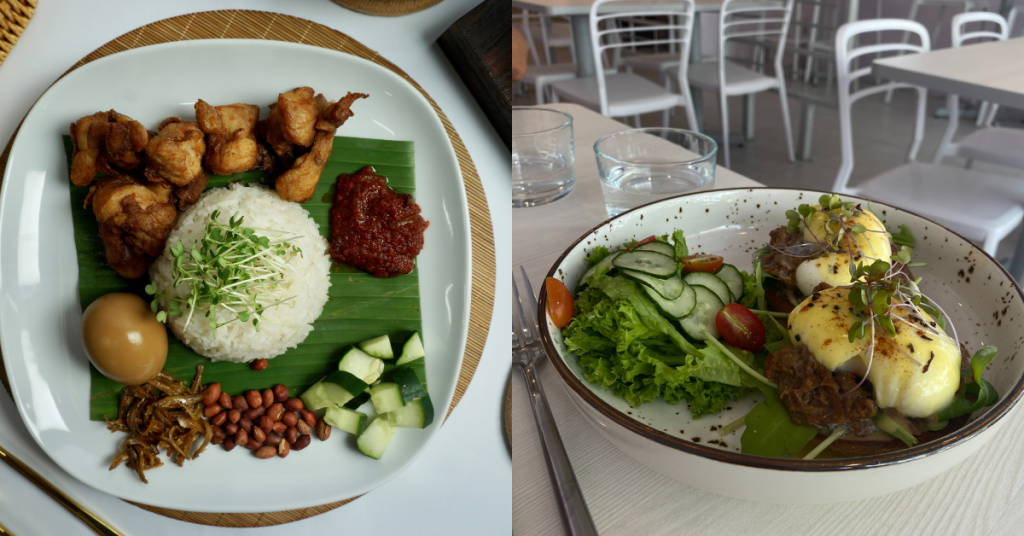
On the topic of customers, another significant challenge is involving business-to-consumer (B2C) sales.
“Many consumers are still unaware of what microgreens are and the substantial health benefits they offer,” the founders pointed out.
As such, the company has been committed to educating the market, as challenging as that process may be.
Education is not just something that happens overnight, after all—the team has invested money and time in initiatives like creating informative content, hosting tasting sessions, and engaging in direct marketing efforts.
Taking tiny steps towards the future
As of now, the Tiny Acres team still only consists of Karen and Qi-Guang who manage the majority of the farming and sales operations.
The duo believes their hands-on approach allows them to maintain high standards of quality and ensure that every aspect of the business aligns with their vision and values.
But of course, the team would have to scale up too especially given their ambitious goals to expand their product offerings beyond microgreens.
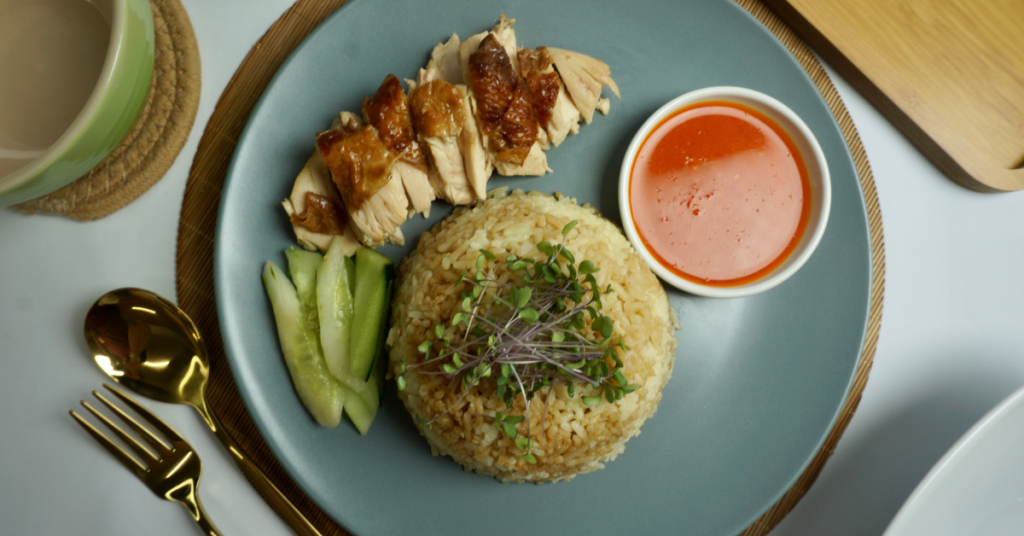
“We plan to offer a wider range of vegetables and herbs, becoming a comprehensive urban farming solution that provides our community with locally grown, pesticide-free produce,” they said.
Beyond manpower and expertise, this will require major upgrades in infrastructure and technology.
However, these would all be worthy investments that contribute towards not just Qi-Guang and Karen’s dreams, but also the future of Malaysia.
Featured Image Credit: Tiny Acres

